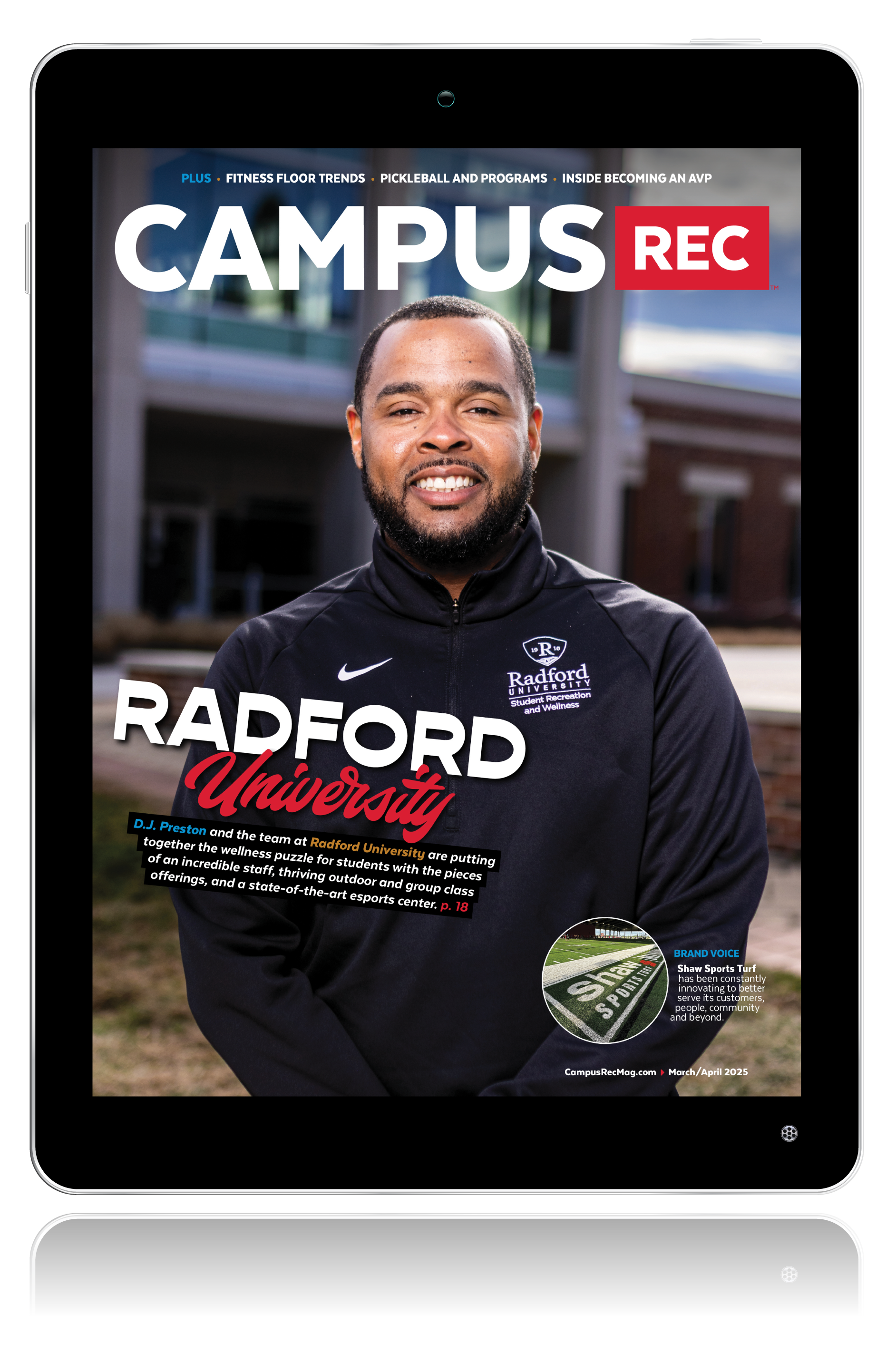Not everyone is comfortable in a gym atmosphere, but offering personal training at your recreation center could be a great way to reach a portion of your student body previously uncomfortable in the gym.
The personal training program at Northeastern University in Boston has offered one-on-one services for the past 18 years. Kristen Miller, associate director of fitness, has seen nothing but growth in interest in the program. It started with only a handful of trainers, but now the program averages 25 to 30 trainers per semester, Miller said.
Each semester, Northeastern’s Campus Recreation hosts a workshop to develop a hiring pool. “We do an in-house training program, which is really an extensive interview process, and then they go and get their nationally accredited certification,” she said.
Although the trainers are students, Miller holds them to professional standards. “They are nationally certified and I think holding your students to that standard of obtaining national certification is an important piece in building a lot of value and foundation to your personal training program,” explained Miller.
She said that some students take a weekend-long workshop, while others buy the necessary material and study on their own. No matter the method, they are required to be nationally certified to be a personal trainer. “I consider the students [to be] professionals,” she said. “That’s really going to help build that foundation and build up the program.“
Most trainers work 10 to 15 hours each week and work with a combination of a set and open schedule. This allows flexibility in scheduling clients, but also promotes consistency to work around other fitness events and programs.
Students interested in training with a personal trainer must first register online. Then, Miller sets up a 15-minute introductory session to discuss health history, personal goals and availability. Based on these things, they can match the student with a trainer.
“The biggest thing with the introductory session and their first personal training session is to really figure if their goals are reasonable,” she said. “So there’s a lot of education there. Most of them want to lose weight and tone up, but there are other more important things to pay attention to — health issues, work-life balance issues, specific sculpting, specific lifting techniques – so it really does run the gamut.”
Most students meet with their personal trainer one or two times a week. Miller said students pay about $25 per session, which is relatively cheap considering the university’s location in a big city.










